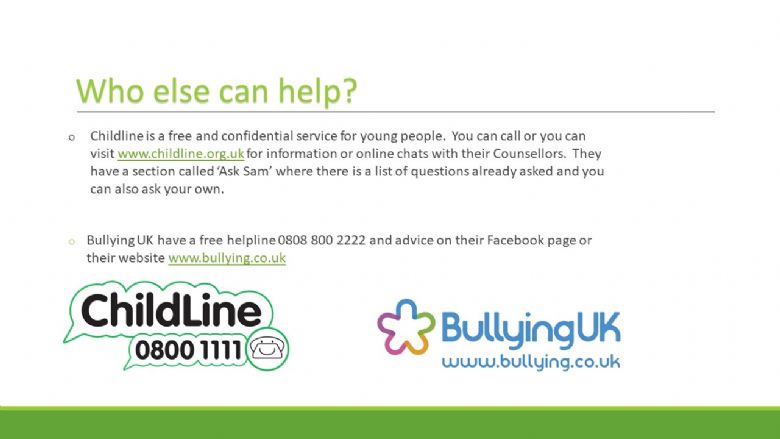Bullying is unwanted negative behaviour, verbal, psychological or physical conducted by an individual or group against another person (or persons) and which is repeated over time. Department of Education and Skills, 2013
Bullying - a definition
The repetitive, intentional hurting of one person or group by another person or group, where the relationship involves an imbalance of power. Bullying can be physical, verbal or psychological. It can happen face-to-face or online. Anti-Bullying Alliance
Bullying is behaviour that is:
- Repeated
- Intended to hurt someone either physically or emotionally
- often aimed at certain groups, for example because of race, religion, gender or sexual orientation
Please report any bullying concerns directly to the Head of Year, Assistant Head of Year for the relevant Year Group or Pupil’s Form Tutor.
Bullying behaviour can be:
- Physical – pushing, poking, kicking, hitting, biting, pinching etc.
- Verbal - name calling, sarcasm, spreading rumours, threats, teasing, belittling.
- Emotional – isolating others, tormenting, hiding books, threatening gestures, ridicule, humiliation, intimidating, excluding, manipulation and coercion.
- Sexual – unwanted physical contact, inappropriate touching, abusive comments, homophobic abuse, exposure to inappropriate films etc.
- Online /cyber – posting on social media, sharing photos, sending nasty text messages, social exclusion
- Indirect - Can include the exploitation of individuals.
The Anti-Bullying Alliance website has many resources and advice for pupils and parents:
https://www.anti-bullyingalliance.org.uk
Dealing with bullying behaviour in school
The school is in a unique position to promote attitudes and to shape patterns of behaviour which are positive and caring. We want school to be an environment where pupils are physically safe and happy and where good relationships are fostered between pupils, teachers, parents and others involved in the running of the school. Staff will act promptly to investigate all reports of bullying. Parents in particular have a responsibility to share in the task of equipping their children with a range of skills which will help them in their dealings with others.
What if my child tells me they are being bullied?
Talk to your child about what they are experiencing. Empower your child with information and skills in an age appropriate way before they encounter bullying behaviour. LISTEN to your child. Ask questions but don’t interrogate. Avoid treating your child as a victim. Work with school and where appropriate help your child to build his/her confidence and self-esteem in other areas. This can be supported through your child engaging in out of school activities, such as sports, music or art activities. Talk with your child’s Head of Year, Assistant Head of Year or Form Tutor if the bullying is school related. A pupil or parent may bring a bullying concern to any member of staff in the school. Staff must take appropriate measures regarding reports of bullying behaviour in accordance with the school’s anti-bullying policy
For assistance from school:
Contact your child’s Head of Year, Assistant Head or Form Tutor.
Mrs Sharkey is the school Anti Bullying Advocate and is also available to offer advice and guidance, sarah.sharkey@georgeeliotacademy.org.uk.



